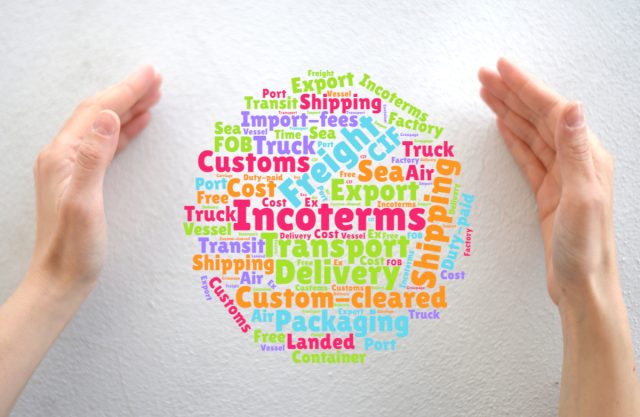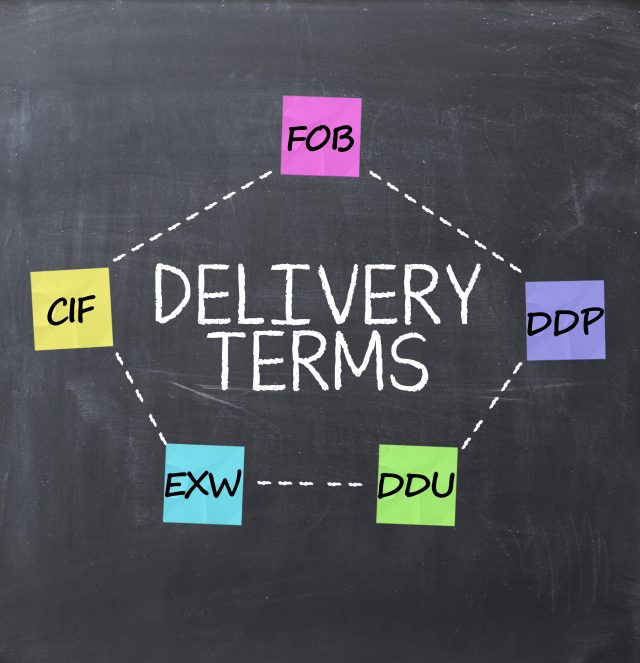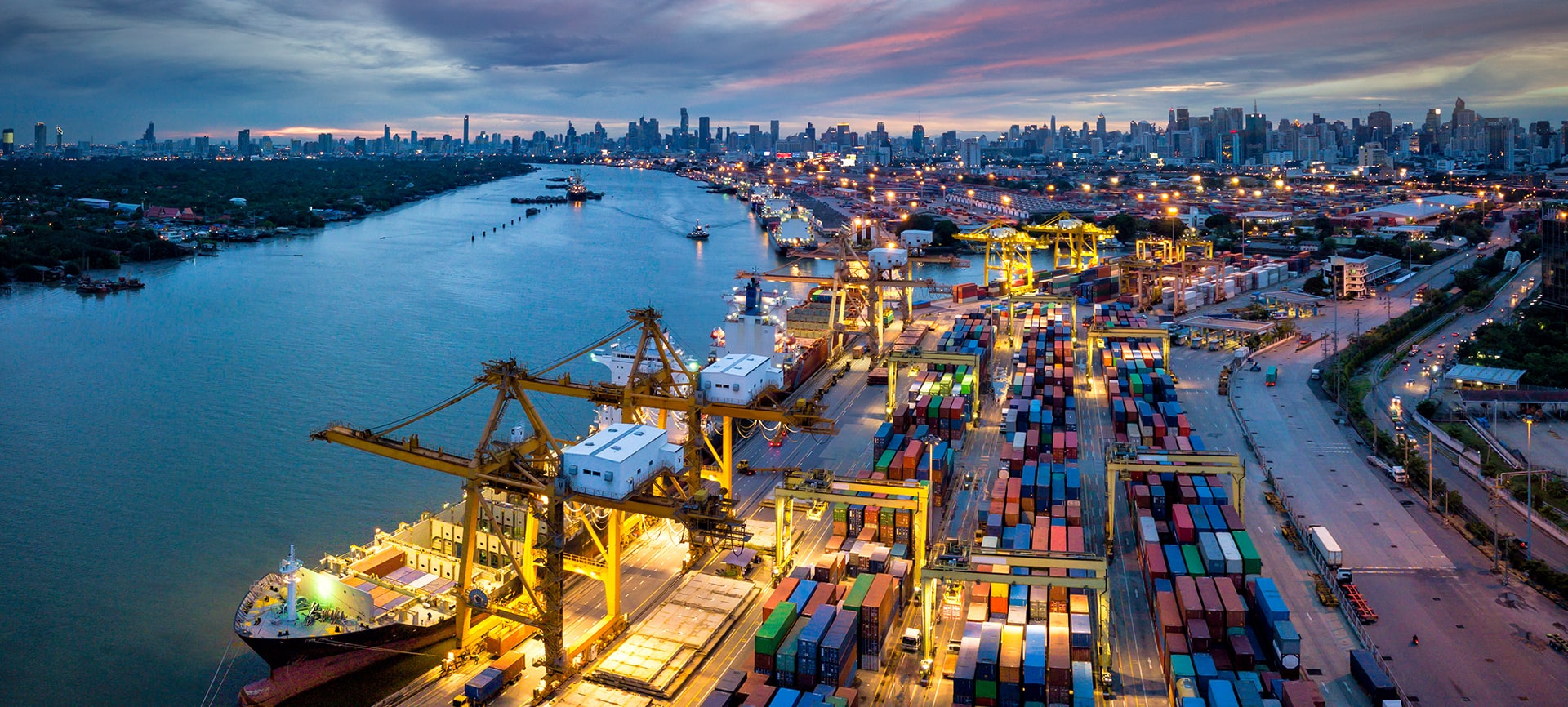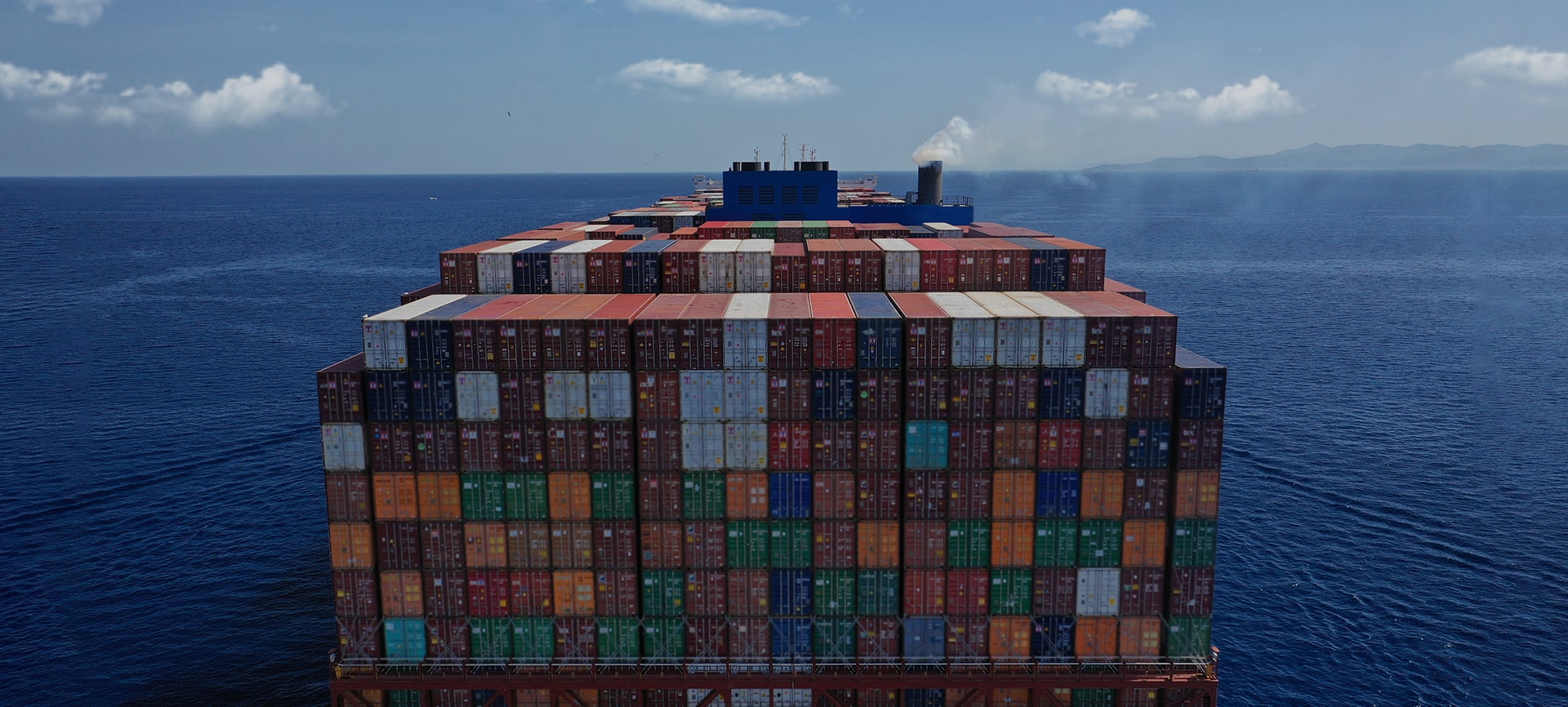Posted on: July 15, 2019 / Last updated: June 12, 2024
This is the easiest explanation of FOB condition!

 ::
::
CONTENTS
What’s FOB?

・ Terms and conditions of transfer of responsibility on the deck of the ship
FOB is one of the International Commercial Terms which is called Incoterms as abbreviation.
FOB refers to the terms and conditions under which the responsibility for costs and risks transfers on the deck of a ship staying at the port of export.[br num=”2″]
FOB stands for Free On Board, and in this case “Board” refers to the deck of a ship.
So, FOB means, “On the deck of a ship, the exporter is free from the responsibility (the responsibility is transferred to the importer)”.[br num=”2″]
In the shipping documents, the name of the export port is written after the FOB like “FOB TOKYO”.
For example, “FOB TOKYO” means “the responsibility is transferred from the exporter to the importer on the deck of the ship staying at export port; Tokyo port”.
::
Aspects of FOB condition

・ As responsibility is transferred at the port of export, responsibility is heavier on the importer.
As you can see from the fact that the deck of the ship is designated as the location of the transfer of responsibility, the FOB is rather used for ocean shipment than air shipment.[br num=”2″]
There is relatively little risk for the exporter as the responsibility is transferred from the exporter to the importer on the ship at the port of export.
In FOB condition, importer’s obligation is smaller than EXW, but still FOB conditions are required for certain level of risk hedge and trading experience.[br num=”2″]
Also, because of its nature, the FOB is said to be suitable for the maritime transportation of conventional ships.
However, because of business practice for long time, it is also currently used for container transportation. We will discuss this issue in more detail later.
::
Where is the point that cost and risk move from Exporter to Importer in FOB

・ Responsibilities are transferred on the deck of the ship, but ship bookings are often made by the exporter
In FOB, responsibility for costs and risks is to transfer from the exporter to the importer when the cargo touches (touchdown) the ship’s deck.[br num=”2″]
So, from the view of responsibility transfer, you can think of the ship’s deck as the cargo delivery point.
Although the importer is responsible after loading the cargo on the ship, the exporter may actually do the booking of the ship.[br num=”2″]
By the way, in Incoterms 2010, as the latest edition, the wording of “Ship’s Rail”, which was assumed as the turning point of the risk under the conditions of FOB, CFR and CIF for many years, has been deleted and the risk will be transferred from exporter to importer when the goods placed “On board”.
::
Problems in using FOB condition for container transportation

・ Because exporter cannot control actual loading work, there is a possibility of risk
In the case of container transportation, loading containers from the terminal onto the ship is, in fact, a task carried out by freight forwarders or shipping companies. [br num=”2″]
As a result, exporters cannot control loading operations themselves. However, under the FOB condition, the exporter is also responsible for the loading, so it is difficult to reduce the risk.
On the other hand, under FCA conditions, when the cargo is delivered at the container yard (CY) that under the control of the buyer-specified carrier, the delivery of the cargo is completed and the risk will be transferred to the buyer. [br num=”2″]
Therefore, for container transportation, FCA should be used rather than FOB.
However, in practice, FOB is a long-standing traditional rule, so even container transportation still uses FOB conditions.[br num=”2″]
As explained before, under FOB conditions, the freight forwarders are actually work in container yard, but the responsibility is on the exporter.
It will be a risk especially for exporter. [br num=”2″]
So The International Chamber of Commerce (ICC) and the Japan External Trade Organization (JETRO) have repeatedly warned that in the case of trade using container transportation, FCA conditions should be used instead of FOB conditions.
::
FOB from the perspective of exporters

・ It is a condition with relatively low risk, but you should pay attention to range of work
You can say that FOB is the condition with relatively low risk, as the exporters will take the responsibility until the cargo arrives at export port, and entrust the subsequent shipping and transportation at the import location to the importers. [br num=”2″]
However, since there are cases that exporters should make a reservation for the ship, etc., it is necessary to pay attention to conditions of contract about range of tasks with the trading partner.
Also, the FOB is originally a trading condition that should be used for transportation on conventional vessels, but since it is a condition that has been used frequently for many years, the FOB price may require from trading partners not limited to trading using conventional vessels. [br num=”2″]
You may be offered trading under FOB conditions even for container transportation.
As an exporter, in order to avoid risks, it is desirable to propose FCA terms that transfer responsibility at the carrier’s facilities, such as container terminals, instead of FOB terms in the case of container shipping.
::
FOB from the perspective of the importer

・Needs knowledge in the exporting country. Basically, avoid using FOB conditions except for conventional ship transportation
For importers, it is a trade condition that requires more than a certain level of trading experience.[br num=”2″]
The condition require responsibility for whole transportation including marine transportation, unloading, land-based transportation, etc.
Unless you have abundant trading experience with forwarders in the exporting country and being able to reliably request shipping at the exporting location on good terms, it would be better to contract with other trading conditions.[br num=”2″]
In addition, when trading under FOB conditions despite container transportation, there may be trouble with the exporter if there is an accident regarding loading of cargo, so also as an importer using FOB conditions other than conventional shipping should be avoided.
::
Summary
This time, we have looked in detail about the FOB.
In FOB conditions, the responsibility is transfer on the deck of the ship staying at the export port.
In the case of container shipping, which is now mainstream, there may be a problem in terms of responsibility when loading, but still FOB can be used for container transportation because it is a long-used trade condition.[br num=”2″]
Whether you are an exporter or an importer, it is important to have an accurate understanding of the FOB terms when making estimates and transactions.
When considering a trading under FOB conditions, it is desirable to conclude a contract after carefully considering its merits and risks.












